Black Friday: The fourth Friday of November when many people will be looking for interesting discounts. Since more and more physical stores are offering Black Friday deals, the question that arises is:
How can physical stores manage to keep Black Friday interesting for consumers?
We asked our large community of European mobile users to tell us about their Black Friday shopping intentions and behavior. Read all our interesting findings in this Consumer Report.
HALF OF EUROPEAN CONSUMERS PLAN TO VISIT PHYSICAL STORES ON BLACK FRIDAY
48% of European consumers plan to visit physical stores on Black Friday. In Italy (69%) and Spain (64%)
the intention to do so is the greatest, while in The Netherlands (32%) and The United Kingdom (33%) the majority do not intend to visit physical stores.
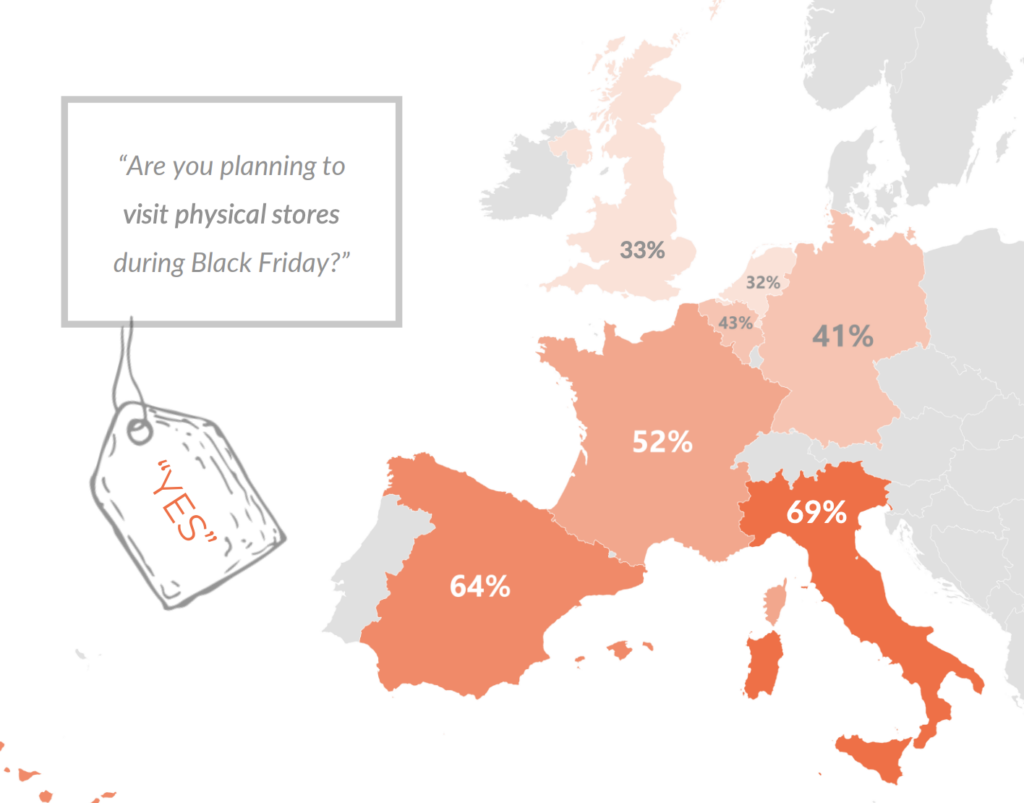
THE POPULAR COMBINATION OF SMALL BUSINESSES & CHAINS
The majority of consumers across Europe plan on visiting both small businesses and large well-known chains to find their perfect deals.
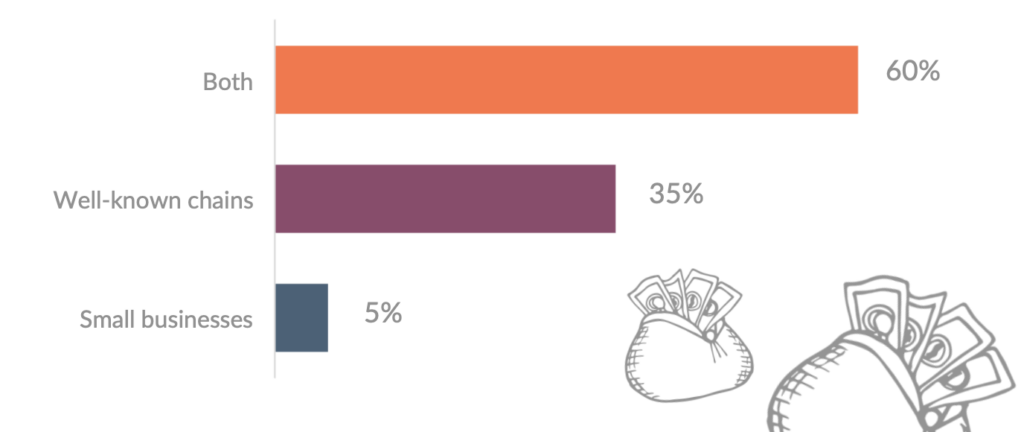
When it comes to what type of deals they will be looking for this Black Friday, Europeans seem to have their priorities straight. Shopping goods (73%) and specialty goods (74%) top the charts in terms of preferences across most countries. In Italy, shoppers have expressed a strong preference for convenience goods, which 70% of Italians expect to find at reduced prices during this upcoming Black Friday.
For most Europeans, the satisfaction of securing a financially good deal, will be the main reason for shopping at physical stores during this Black Friday; immediately followed by being able to buy products they normally cannot afford. Being able to purchase items that are normally out of their spending capabilities, is the strongest incentive to purchase for French (43%), Spanish (40%) and Italian consumers (42%).
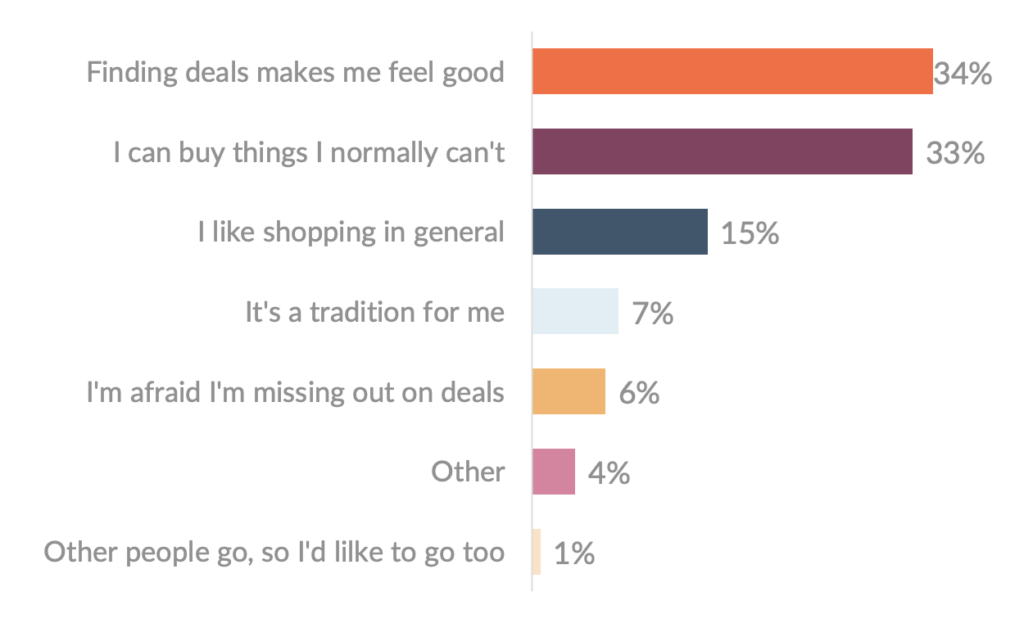
In the Netherlands, a second common reason to stay at home during Black Friday is the assumption that deals are not trustworthy (30%). In Germany, 24% of the non-shoppers state they are simply not interested in Black Friday deals. Health and safety concerns are most prevalent in the UK (10%).
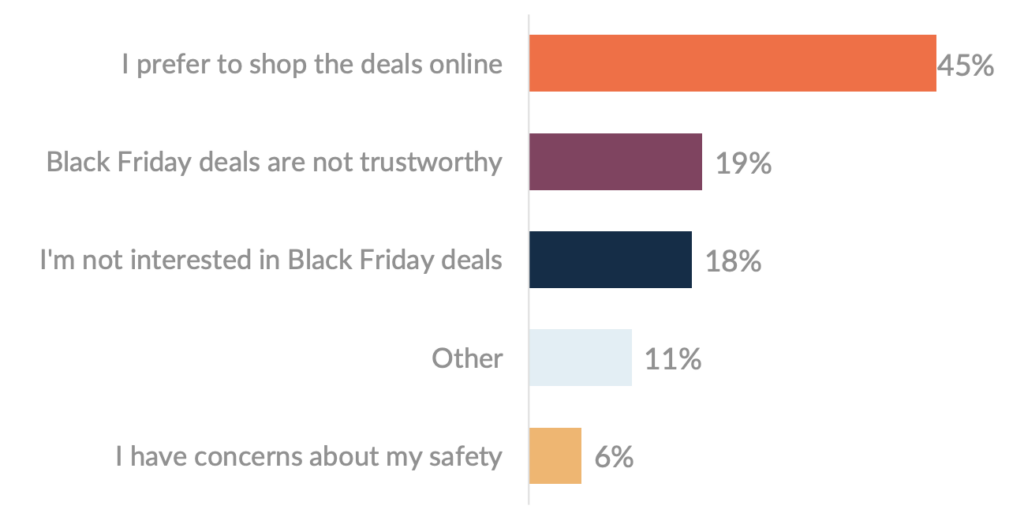
MOST DEALS ARE SOUGHT IN ELECTRONIC, CLOTHING AND DEPARTMENT STORES
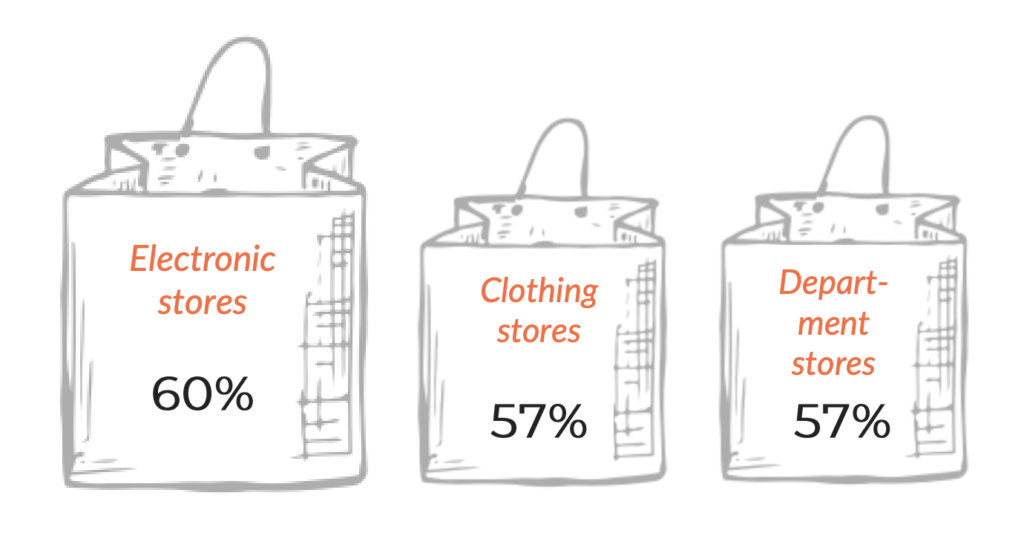
French, Spanish and English consumers in particular seem to like a wide choice of products during Black Friday, as the majority plan to shop Black Friday deals at department stores (74%, 69%, 72%). When it comes finding alcohol at reduced prices, Germany is the leading country, with 23% of consumers planning to shop at liquor stores.
To be able to find Black Friday deals, many European consumers believe that stores must extend their opening hours (68%).
Stores should do this for a time period of one week (63%), or just on Black Friday (31%). By extending the opening hours, there is a chance that stores will achieve higher profits, since most European consumers are willing to spend €101 – 300 on Black Friday deals in physical stores.
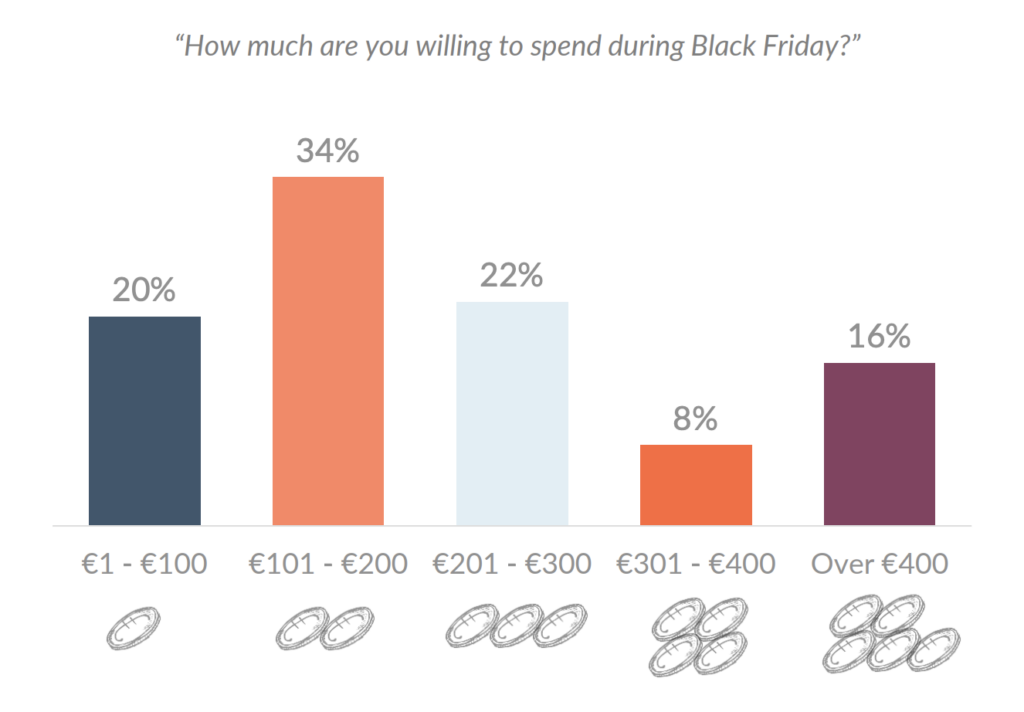
CONSUMER GUILT MOSTLY ABOUT SOCIAL DAMAGES
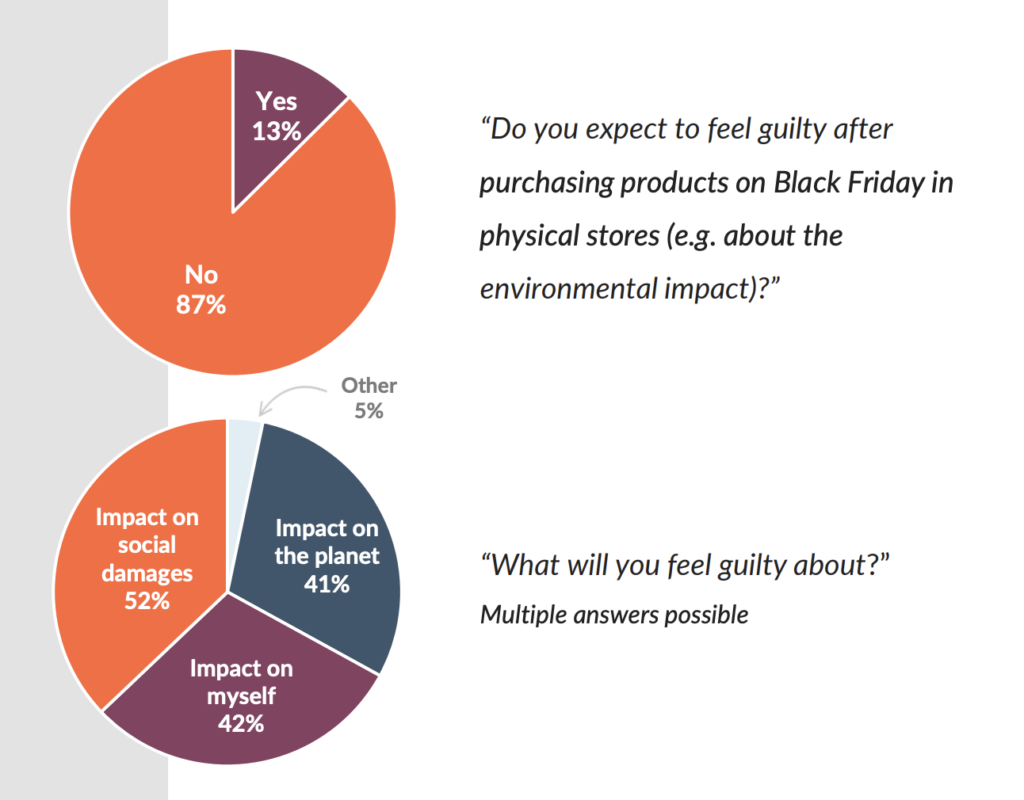
Despite the general rise in consumer awareness, most European consumers do not expect to feel guilty after purchasing their Black Friday deals. If they do feel guilty, this will mainly be about the social damage caused by their purchase. Stores should therefore pay attention to the origin of the products they offer. For example, they may wonder whether the working conditions in the chain are acceptable.
While the number of COVID-19 infections is rising again in several countries, most European consumers are not concerned about their safety and health when visiting their favorite store on Black Friday. If consumers are concerned, most believe that stores should maintain a maximum number of customers allowed in stores (72%).
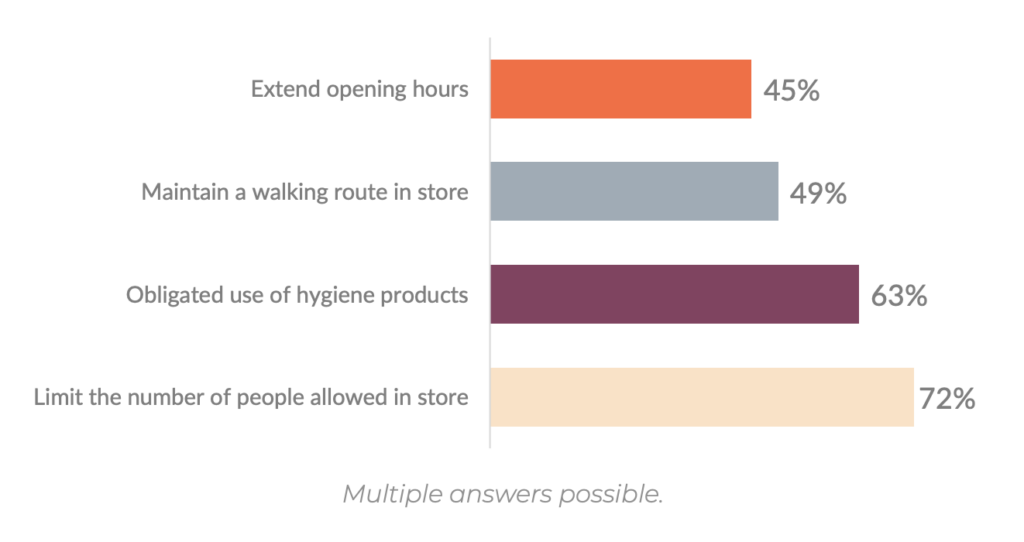
PREFERRED COMMUNICATION CHANNELS
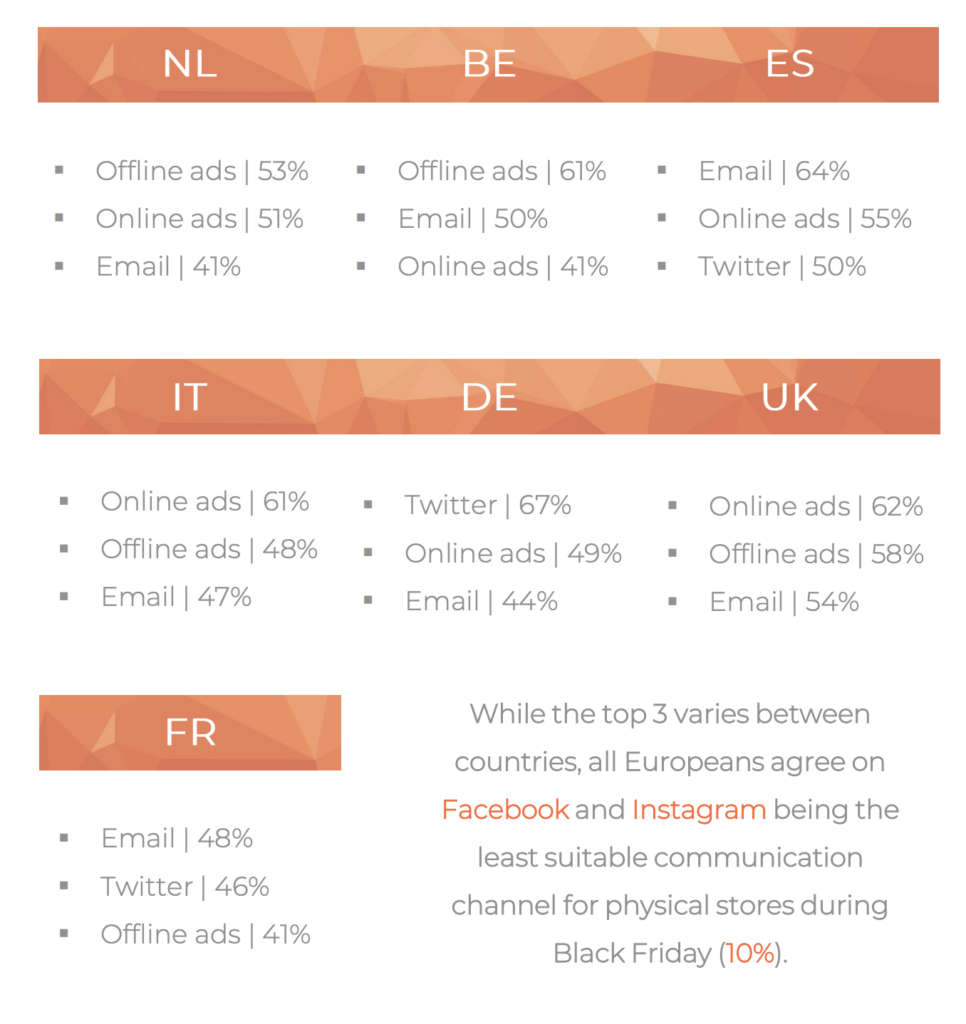
The findings presented in this report are based on the results of an investigative task submitted to the Roamler Crowd during one month (October 2021). The purpose was to determine the crowd’s shopping intentions and behavior in physical stores when it comes to Black Friday. The findings reflect data collected from respondents, located in Italy, France, Spain, the United Kingdom, Germany, Belgium, and the Netherlands.